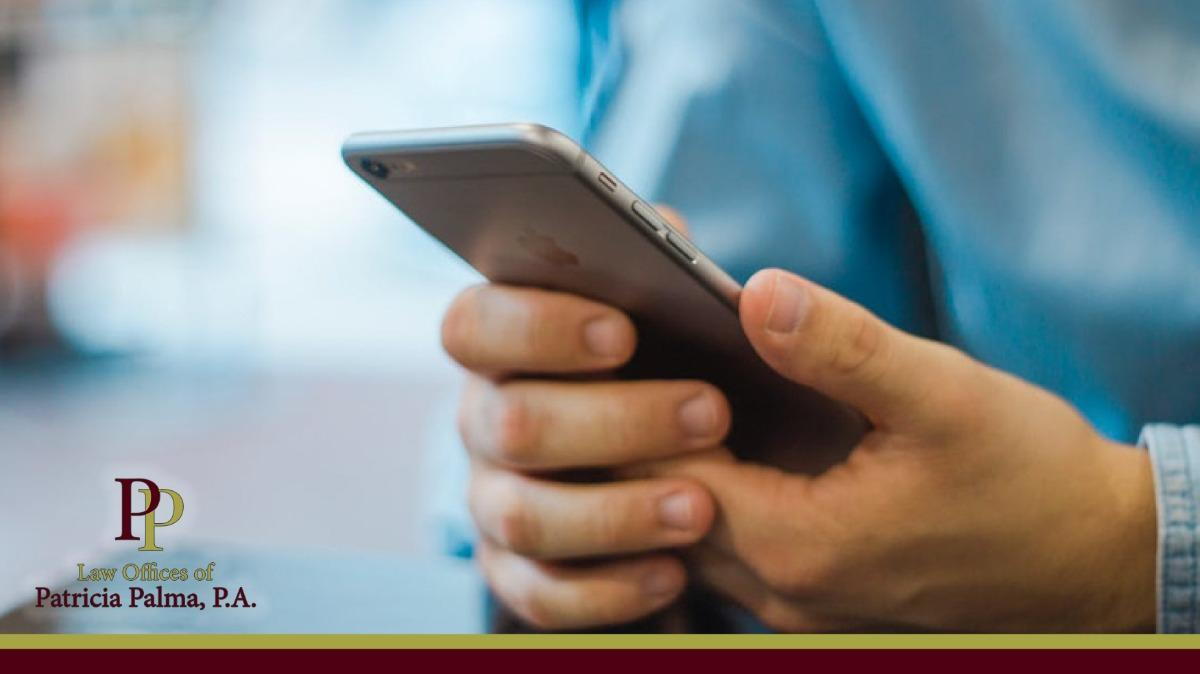
- posted: Sep. 12, 2019
While in front of a Judge, everyone is on their best behavior, especially when dealing with custody cases. For some people in the process of a divorce or a custody dispute, it can be very frustrating to see a spouse act perfectly civil in the courtroom. It can be especially difficult when they have behaved terribly to their partner and children in private. In an effort to show the Judge “the other side” of the spouse’s toxic personality, it can be tempting to want to record or videotape their actions while in private.
Although having video or audio evidence of the other spouse’s poor behavior may benefit your divorce or custody case, you should proceed with caution as you could be violating the law. In Florida, it is illegal to record oral communications unless the spouse gives his or her consent. Therefore, in Florida, you cannot secretly record a private conversation with another person without their consent and then disclose it or use it in court.
There are exceptions to this rule. As discussed above, consent is one of the exceptions. Florida is a “two-party consent” state, which means that it’s illegal to record conversations unless all parties have given consent to be taped or overheard. By Florida recording laws, it’s illegal to record someone without their knowledge in an area where they have “a reasonable expectation of privacy” such as bathrooms, fitting rooms or in their private home. However, if the recording is taking place in a crowded public park, it may be successfully argued that the spouse had no expectation of privacy, and therefore, the recording may be entered into evidence at your divorce proceeding.
Before you decide to move forward and record your former spouse or partner, speak to an attorney familiar with the rules and laws of your state. Opening yourself to criminal liability is never worth the risk, and an experienced family law attorney can help guide you through the divorce process and help you avoid the risk of criminal liability.
The Law Offices of Patricia Palma has 19 years of experience in family law. If you have questions regarding the audio or videotaping of your spouse, contact The Law Offices of Patricia Palma, P.A at 813-258-3211 or contact us online to schedule a meeting at our Tampa office.
Disclaimer: The information in this blog post (“post”) is provided for general informational purposes only and may not reflect the current law in your jurisdiction. No information contained in this post should be construed as legal advice from the individual author, nor is it intended to be a substitute for legal counsel on any subject matter. No reader of this post should act or refrain from acting on the basis of any information included in, or accessible through, this Post without seeking the appropriate legal or other professional advice on the particular facts and circumstances at issue from a lawyer licensed in the recipient’s state, country or other appropriate licensing jurisdiction.

- posted: Sep. 12, 2019
While in front of a Judge, everyone is on their best behavior, especially when dealing with custody cases. For some people in the process of a divorce or a custody dispute, it can be very frustrating to see a spouse act perfectly civil in the courtroom. It can be especially difficult when they have behaved terribly to their partner and children in private. In an effort to show the Judge “the other side” of the spouse’s toxic personality, it can be tempting to want to record or videotape their actions while in private.
Although having video or audio evidence of the other spouse’s poor behavior may benefit your divorce or custody case, you should proceed with caution as you could be violating the law. In Florida, it is illegal to record oral communications unless the spouse gives his or her consent. Therefore, in Florida, you cannot secretly record a private conversation with another person without their consent and then disclose it or use it in court.
There are exceptions to this rule. As discussed above, consent is one of the exceptions. Florida is a “two-party consent” state, which means that it’s illegal to record conversations unless all parties have given consent to be taped or overheard. By Florida recording laws, it’s illegal to record someone without their knowledge in an area where they have “a reasonable expectation of privacy” such as bathrooms, fitting rooms or in their private home. However, if the recording is taking place in a crowded public park, it may be successfully argued that the spouse had no expectation of privacy, and therefore, the recording may be entered into evidence at your divorce proceeding.
Before you decide to move forward and record your former spouse or partner, speak to an attorney familiar with the rules and laws of your state. Opening yourself to criminal liability is never worth the risk, and an experienced family law attorney can help guide you through the divorce process and help you avoid the risk of criminal liability.
The Law Offices of Patricia Palma has 19 years of experience in family law. If you have questions regarding the audio or videotaping of your spouse, contact The Law Offices of Patricia Palma, P.A at 813-258-3211 or contact us online to schedule a meeting at our Tampa office.
Disclaimer: The information in this blog post (“post”) is provided for general informational purposes only and may not reflect the current law in your jurisdiction. No information contained in this post should be construed as legal advice from the individual author, nor is it intended to be a substitute for legal counsel on any subject matter. No reader of this post should act or refrain from acting on the basis of any information included in, or accessible through, this Post without seeking the appropriate legal or other professional advice on the particular facts and circumstances at issue from a lawyer licensed in the recipient’s state, country or other appropriate licensing jurisdiction.



